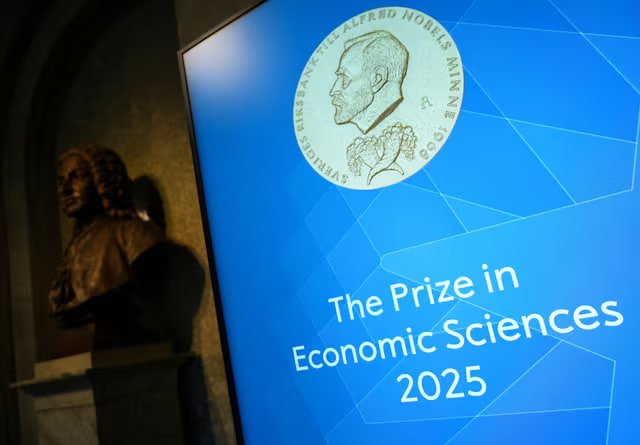The 2025 Nobel Prize in Economics has been awarded to Joel Mokyr, Philippe Aghion, and Peter Howitt for their groundbreaking work explaining “innovation-driven economic growth,” the Royal Swedish Academy of Sciences announced Monday.
The award, formally known as the Sveriges Riksbank Prize in Economic Sciences in Memory of Alfred Nobel, comes with 11 million Swedish crowns ($1.2 million) and marks the final Nobel honor to be presented this year.
The Academy said the trio’s research reshaped understanding of modern growth by revealing how sustained economic progress depends on continuous innovation.
“The laureates have taught us that sustained growth cannot be taken for granted. Economic stagnation, not growth, has been the norm for most of human history.
Their work shows that we must be aware of, and counteract, threats to continued growth,” the committee said.
Mokyr, a historian of economic thought, and Aghion and Howitt, both macroeconomists, have advanced the theory that technological progress, not just capital accumulation, drives long-term prosperity. Their models and historical analyses help explain why economies that foster innovation, competition, and education achieve faster productivity gains.
The insights have influenced global policy debates on research funding, industrial policy, and the regulation of emerging technologies.
The economics prize, established in 1969, decades after Alfred Nobel’s original awards for medicine, physics, chemistry, peace, and literature, was first given to Norway’s Ragnar Frisch and Jan Tinbergen of the Netherlands for dynamic economic modeling.
Over the years, it has honored figures such as Milton Friedman, Paul Krugman, and former U.S. Federal Reserve chair Ben Bernanke for advancing understanding of macroeconomic systems.
Last year’s award went to Simon Johnson, James Robinson, and Daron Acemoglu for research linking colonial history and institutional development to global inequality.
The 2025 recognition continues that tradition of exploring what drives prosperity, emphasizing innovation as the key engine of growth in an era defined by technological transformation and economic uncertainty.

